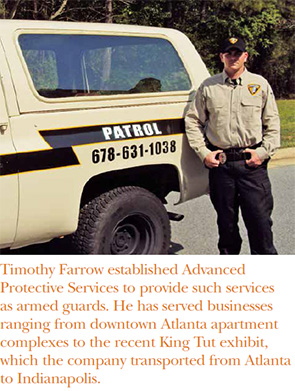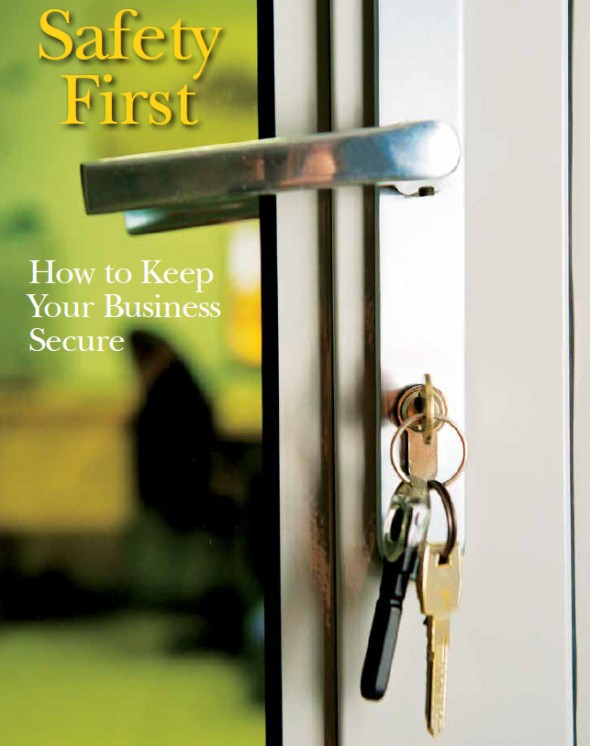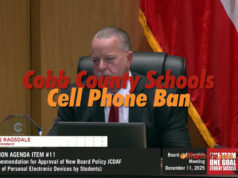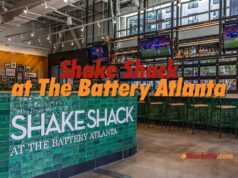How to Keep Your Business Secure
When advising his clients about how to adapt the best security practices, John Loud of Kennesaw’s Loud Security Systems likes to say, “I strongly encourage you to do it a month too early rather than a day too late.” Loud remembers when one appointment to install a security system came too late, by a matter of seconds. “Our installers were setting up to do an install at a residence, and the homeowner was running late. When they arrived, the front door was open, and who was running out the back door? A burglar, who got the jewelry and was starting to take the TVs, but ran out of time.” While most companies don’t need to guard against such smash-and-grab–style crimes, maintaining proper security practices in the modern-day office requires businesses to strike a balance between the high-tech protections of the 21st century and old-fashioned safety measures.
Identity theft and the misuse of proprietary information are serious concerns for businesses, with the Federal Trade Commission estimating that up to 9 million Americans have their identities stolen each year. As the website for Marietta’s A1 Shredding & Recycling explains, “More than 40 federal laws mandate that all businesses, health care facilities and financial institutions protect the confidential information of their clientele.” Proper disposal of sensitive material isn’t just a good business practice, but can save companies from fines of up to six figures in the event of a breach.
Going Paperless
“Normally we tell businesses that the best practice is to shred everything,” says Louie Fernandez of A1 Shredding & Recycling, which provides on-site shredding services across metro Atlanta, with about 20 percent of its business in Cobb County. “Any business that needs financial information, or requires invoices with account and routing numbers—we tell them to shred everything. You can’t just throw paperwork in a dumpster anymore.” Given companies’ present-day capacity to digitally scan documents, Fernandez doesn’t see much advantage to keeping hard copies on hand. “Different companies have different policies on keeping documents, which can range from one year to five years to 10 years. But some companies scan documents and shred them within a week. I would definitely get rid of it while you can and don’t let it sit.”
Businesses may not realize that strip-shredding—the kind of destruction that reduces a paper document into spaghetti-like strands—does not mean the document is secure. “There’s software that can put back together documents that have been strip-shredded. Things have to be shredded to 5/8 of an inch and cross-cut,” Fernandez explains.
This is a policy companies should maintain for years to come, as Fernandez believes that forecasts for the death of paper have been exaggerated. “Five years ago, people predicted that we’d be paperless, but there’s still a lot of paper out there. If someone in an office sends out an email, people are still going to print it out. At the end, there’s going to be a paper trail. I don’t see paper going away for at least five or 10 years.”
Beyond the Alarm
Even truly paperless offices can keep confidential information in digital form, which can require more permanent forms of disposal than simply dragging a document icon into a desktop trashcan on a computer. A1 shreds not just paper items, but hard drives as well. “A lot of companies like to sell the (electronic) wiping and sanitation of hard drives, but it costs more to do that. The best way is to destroy the hard drive. If it’s in little pieces, it can’t get put back together,” says Fernandez.
Loud wants to convert Loud Security Systems to a paperless workspace partly so his office can use its space more efficiently. Established in 1995, Loud Security primarily provides security installation and monitoring services, but also offers low-voltage installation services such as home theaters and sound systems for dental offices. “I tell customers that the same center that [monitors] the jeweler D. Geller & Sons will monitor my house or your house,” says Loud.
Loud speaks candidly about the most efficient and cost-effective security methods. “We do a lot of camera installations, but in many cases, they’re a waste of money. Cameras can tell you after the fact what happened, but the video may not be useable. A lot of people feel that they want cameras, but what they end up getting is access control.” Loud explains that keycard-style access control can prevent thefts and security problems. “Many offices, warehouses or condominiums have two or three main entranceways. A lot of times and intruder will walk in, look around, grab a laptop and out he goes,” he says. “Restriction through access control can limit this. Access control is more expensive than a key, but a key can be replicated.”
He acknowledges that for companies on a budget, a simple alarm with motion detectors may be a good option. “Motion detectors can notice intruders no matter how they get in,” he says. “Access control brings in the next tier of security.” Loud points out that access control can also limit the number of employees who can get into corporate IT rooms or places where valuable or sensitive material is stored.
People also need some way of knowing that a company has a security system in place. “Eighty percent of the deterrence … is about the sign,” Loud says. An out-of-date sign advertises that a company has weak security. “If somebody has a Brink’s yard sign, the burglar might recognize that Brink’s is no longer a system. They changed their name to Broadview, and were then bought by ADT. If the security was current, the sign would’ve changed.”
Security Personnel
 In some cases, companies need to maintain security with live bodies capable of safely using live ammo. In the mid-1990s, former U.S. Army infantryman and Alabama police officer Timothy Farrow established Advanced Protective Services to provide such services as armed guards. He has served businesses ranging from downtown Atlanta apartment complexes to the recent King Tut exhibit, which the company transported from Atlanta to Indianapolis.
In some cases, companies need to maintain security with live bodies capable of safely using live ammo. In the mid-1990s, former U.S. Army infantryman and Alabama police officer Timothy Farrow established Advanced Protective Services to provide such services as armed guards. He has served businesses ranging from downtown Atlanta apartment complexes to the recent King Tut exhibit, which the company transported from Atlanta to Indianapolis.
Farrow and his company offer consulting services on how to make businesses more secure. “When we go to a business, we’ll do an assessment of what could be a danger area and how to make it less of a danger area. We look for weak spots in security, starting from the outside and working our way in. We want to increase the safety for personnel and equipment,” says Farrow. When dealing with potential criminals, he explains, “Sometimes our corporate clients have assets that need protection. They can have an employee abuse situation, a vendor abuse situation or sometimes just a thug who gets a bad idea.”
Farrow finds that overall, people tend to be safe in their offices, but run risks in places like parking lots, which may require guards. He believes that people could protect themselves better by simply being more attentive. “One of the biggest things I’ve noticed in doing security is that average individuals have a complete lapse in awareness of their environment … People have a hard time switching on the need to start paying attention to their environment. A bad guy is a predator, like a wolf, looking for the weak, the lame or the inattentive. Simply establishing eye contact is a very good way to not be a victim—they’re looking for someone afraid to look at them.”
Farrow says he keeps up about 25–50 employees at a time, to maintain the personal touch in his company. “I like to keep the company small for a reason. I like to know everyone who works for me. One thing I can’t stand is a boss who doesn’t know his employees,” he says. After all, knowing who you work with may be the safest business practice of all.
















